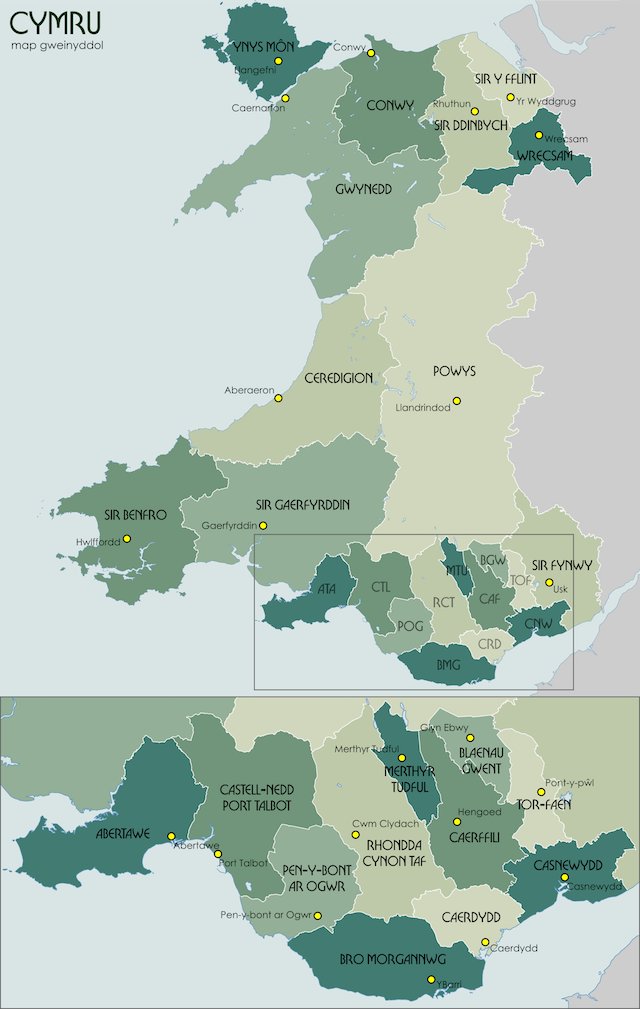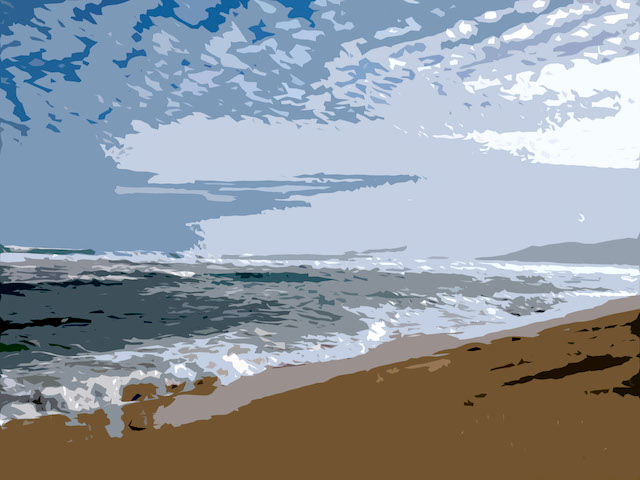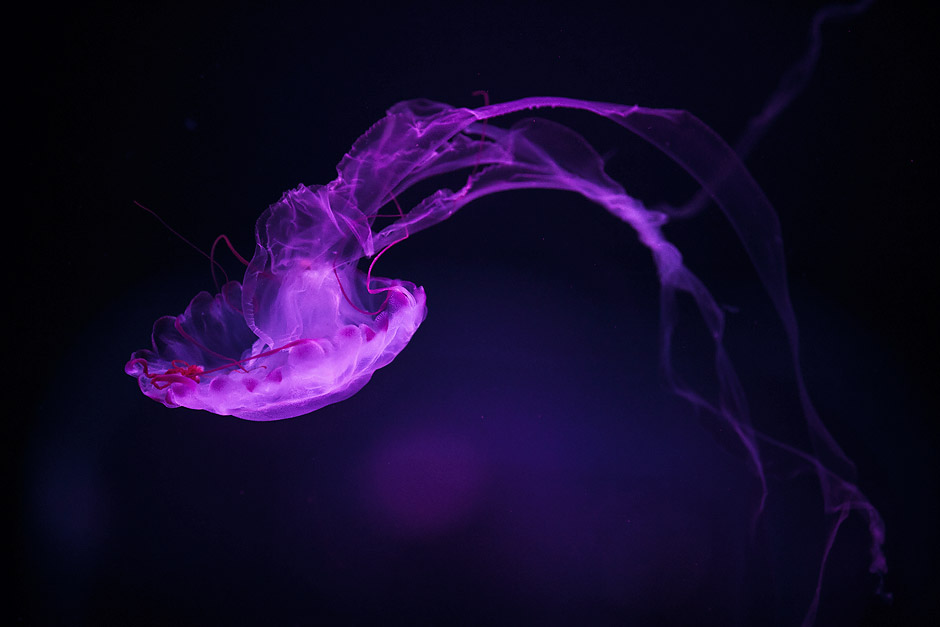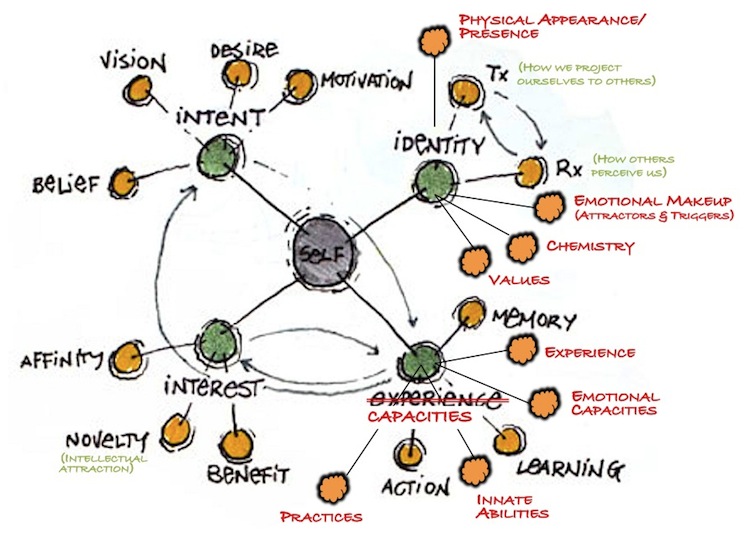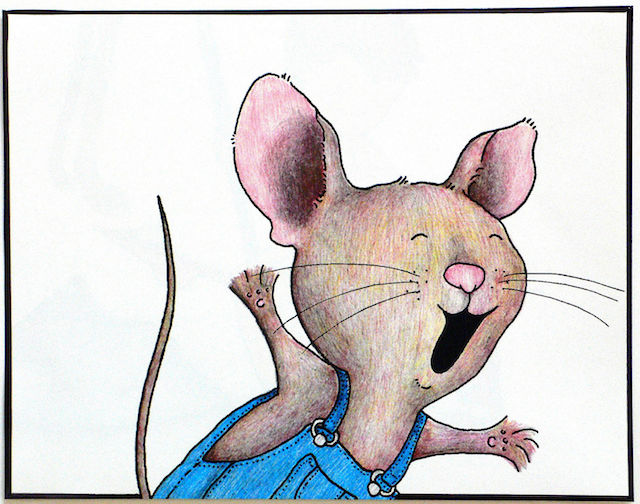The events of the last three months have made it increasingly clear that we’re well into the first wave of global industrial civilization’s collapse.
- There’s been an astonishing increase in extreme weather events and climate anomalies, attesting to the rapid and unpredictable destabilization of our global climate.
- There’s been a sharp increase in the level and breadth of psychopathy of the so-called “leaders” of our political, business and economic systems — to the point there’s no longer even a pretence of honesty in public proclamations, a pretence of fairness in the simultaneous overregulation in some sectors (the security apparatus and corporate interests) and massive deregulation in others (any laws and institutions protecting the public interest), a pretence of justice or civility in the outrageous actions of the judiciary and law “enforcement”, or a pretence of legality or decency in the wholesale pillaging of public lands, resources and the commons by the corpocracy — attesting to the fear and desperation of those with wealth and power to protect and hoard what they have in the face of the inevitable crises ahead.
How does one ‘deal’ with the simultaneous collapse of so many systems upon which so many of us now utterly depend? How does one explain to one’s children that the idea of progress was a myth and that the future we are bequeathing to them is likely to be grim, desolate, unhealthy and, worst of all, completely unpredictable, as we swing from one wave of collapse, through temporary periods of stability, and then into the next even more bleak and bewildering wave?
I can see no way of coping with it beyond doing what one can at the local level to help those in our communities adapt to its fallout, and to do so with as much compassion, joy in the moment, generosity, and equanimity that we can muster. We can’t plan, or control, or predict, or even really prepare, beyond self-knowledge, staying healthy, and learning essential skills, for what may come next.
Not much else to say.
PREPARING FOR CIVILIZATION’S COLLAPSE
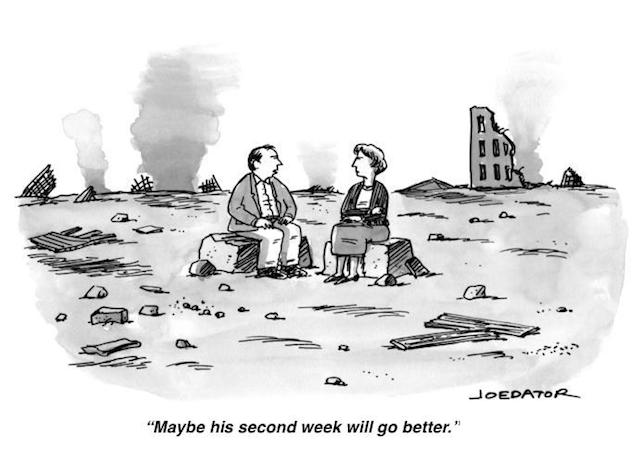
Winning caption, submitted by Audrey Orr, to a recent New Yorker cartoon caption contest; cartoon by Joe Dator
Will the Crash of 2018 Be the First Stage of Civilization’s Collapse?: The thorough and fearless British investigative journalist Nafeez Ahmed explains how by 2018 the short-term glut of energy will yield to a long-term intractable deficiency in affordable energy that will quickly bring about a massive crash of the global industrial food and economic systems that depend on an abundance of cheap energy. (Thanks to Guy Fraser for the link.) It’s looking more and more likely that America’s hapless current buffoon-in-chief will become known as the Peak Oil President.
Why Climate Scientists Fear to Tell Us The Truth: The climate is changing so quickly, and even the most pessimistic models of climate instability are being so quickly exceeded by alarming new data, that many climate scientists are beginning to suffer from PTSD-like symptoms and are self-censoring because (a) they don’t know how to tell the long-deceived public how quickly we’ve passed the point of no return, without inciting anger, hopelessness and denial, and (b) they will lose their jobs if they do so. They will tell you that the idea of containing climate change to under 2ºC is absurd, and that a catastrophic 6ºC of average global warming this century (with up to 15ºC warming in some polar and other areas) is increasingly looking like an optimistic forecast. Thanks to Andrew Campbell for the link.
Massive Arctic Temperature Anomaly Wreaks Havoc on Global Weather: Temperature variances in the arctic of as much as 40ºC within a few hundred kilometres have occurred on and off all winter, as the far north continues to see sustained long-term temperatures 5+ºC warmer than historical averages, contributing to massive glacier melt and the imminent complete disappearance of the arctic ice pack. British Columbia has, as a result of high-level polar winds produced by these anomalies, had the coldest, snowiest winter in decades, while in Eastern Canada record high temperatures are now yielding to massive early spring blizzards. Similar stories abound on every continent. At least one climate scientist says the jet stream, which moderates temperatures, may have been permanently disrupted, rendering the models used for long-term forecasting here on in more or less useless.
What 6ºC of Average Warming Means Locally: As optimists about our ability to deal effectively with climate change sound increasingly deluded and in denial, some communities have given up hoping for large-scale action on climate change and are commissioning reports on what 6ºC of warming will mean for agriculture, infrastructure and security in their communities.
Other Disasters On the Horizon: If economic and ecological crises weren’t enough, there are signs that the stop-gap measures at Fukushima’s nuclear reactors, five years after the tidal wave damage, are not working and full-scale melt-down may be inevitable. And there is other evidence, such as the potentially disastrous crumbling of the Mosul Dam (“a bigger problem than ISIS”) and the breaching of the US’ Oroville Dam and critical damage to the Clifton Court Reservoir, that our fragile and funding-starved infrastructure will rapidly crumble as extreme climate events become more commonplace. And we already know that we’re utterly unprepared for the type of major earthquake that will hit the North American West Coast likely also in this century, as worrying signs of its arrival are increasingly evident.
LIVING BETTER
Science Fiction for the Real World: John Michael Greer (who has recently been waxing philosophical about collapse and even touching on non-duality) suggests that some of the best ideas about what collapse might look like, and how to live through it and after it, might come from intelligent, non-formulaic speculative fiction; he contributes regularly to Into the Ruins, a quarterly compendium of such writing. Editor Joel Caris brings to it an interesting philosophy and writes thought-provoking intros to each edition that alone are worth the cost of a subscription.
Symmathesy: Nora Bateson has been developing new language around complexity, perceiving that the traditional mechanistic language of “systems” is simplistic and flawed and can lead to illogical and ineffective thinking. Symmathesy is her replacement for “complex system”, or more precisely for “adaptive co-evolving interaction”. Only by changing our ways of thinking about such interaction to a more holistic, less analytical one, she argues, can we start to appreciate how symmathesy actually works and how to work within, rather than upon, it. Thanks to Tia Carr for the link.
Risking Jail For Your Beliefs: On a par I think with whistle-blowers and truth-exposers like Edward Snowden, the five brave and principled valve-turners who safely shut down the Tar Sands pipelines for one day, made a huge personal sacrifice to show us all how to behave in the face of social and environmental outrages when other means have failed. They continue a long line of non-violent direct action heroes who deserve our commendation and support. Thanks to Tree Bressen for the link.
Eating Better: Michael Greger’s NutritionFacts website is a completely free, non-profit, comprehensive searchable (and entertaining) guide to everything there is to know about clinical research on the nutrition-health connection. Nothing for sale there, and nothing on offer except the truth, and it’s surprisingly simple and affordable. (For an overview, start here.)
Rebooting the Democratic Party: Young blogger Rebecca Meyer, a lifelong Democrat, articulately urges progressives to abandon the failed strategies, platforms and standard-bearers of the DNC establishment and reposition the party as a true progressive party.
Reinventing Organizations: Fredric Laloux’s book about how to structure and operate your organization as “teal” is generating much warranted enthusiasm — possibly the most useful set of new OD ideas in the last decade. One recent article presents a pretty thorough and mostly fair review of the basic principles of “teal” organizations, and then (IMO somewhat unfairly) criticizes the book because it fails to acknowledge that none of its ideas are new (they have been employed in different cultures for millennia). Thanks to Tree Bressen and Ben Collver for the link.
Could the Post Office Be the Solution to Hunger in Affluent Nations?: A fascinating new proposal suggests the USPS and its counterparts in other nations have precisely the infrastructure and processes needed for effective food distribution to the poor. Thanks to Lorraine Suzuki for the link.
Complexity-Based Approaches to Planning and Design: A new article from my friend Chris Corrigan suggests four shifts from traditional planning approaches that are often idealistic and assume we know more than we actually do: (1) Shift from Environmental Scans to Discerning Patterns through Anecdote Circles (making sense of rich stories about what is happening/needed, rather than analyzing less granular broad brush trends); (2) Shift from Visioning & Goal Setting to Scenario Planning (being prepared to adapt to alternate possible future states, rather than banking on one); (3) Shift from Goals & Objectives to Probes & Prototypes (trying iterative experiments informed by continuous intelligence-gathering, rather than creating things that might be vulnerable to shifting goalposts); and (4) Shift from Summative Evaluation to Developmental Evaluation & Continuous Learning (learning and constantly making incremental improvements and adaptations, rather than waiting until the process/project is complete for formal measurement and assessment). In a related line of thinking, Aleks Savic suggests that, because confirmation bias is evolutionarily selected for (it helps us communicate better and be more persuasive, even though it often leads us to make bad decisions) we would be better learners and designers if we acknowledged and embraced conflicting and unsettling beliefs and ideas.
Disentangling the Issues of Gender Identity: Rebecca Reilly-Cooper’s Sex and Gender: A Beginner’s Guide is a very long and very thorough explanation of the rationale for radical feminists’ heated and controversial disagreement with the trans community on the issue of gender identity.
POLITICS AND ECONOMICS AS USUAL

Photo taken shortly after version one of the US President’s anti-Muslim decree; original source unknown
Move Along Folks, Nothing Important Happening Here: While pundits ponder whether Der Drumpf is even more mentally ill than other current and recent global “leaders”, it might be worth speculating whether any sane person would go through what Bernie Sanders or Keith Ellison (thanks to Antonio Dias for the link) went through to fight the intractable bought-and-sold party machines that control most so-called “democratic” governments. Mental illness also underlies the utter despair and anxiety of those most at risk from Drumpf’s arbitrary and frivolous wrath, and the testosterone-fueled rage (thanks to Earl Mardle for the link) of his supporters in America’s surging neo-fascist movements. Even die-hard conservatives are aghast. And the corporate-controlled for-profit American “health care” system is so bloated and incompetent (thanks to Nancy Ryder for the link) even its supporters question how long it can continue. When we live in an insane culture, we should not be surprised at what it wreaks. In other countries — Canada for example — signs point to the same evolving trends: corrupt governments, emboldened hate groups, uncontrolled business scams, ultra-rich corporatist tax cheats, and a general feeling of anomie that anything can be done about it. And in states like Russia further along the path of collapse, in the remote outposts not protected by the power kleptocracy average life-spans have plunged back into the 50s as death begins to look like an attractive alternative to what the future holds. This is what large-scale system failure looks like.
FUN & INSPIRATION
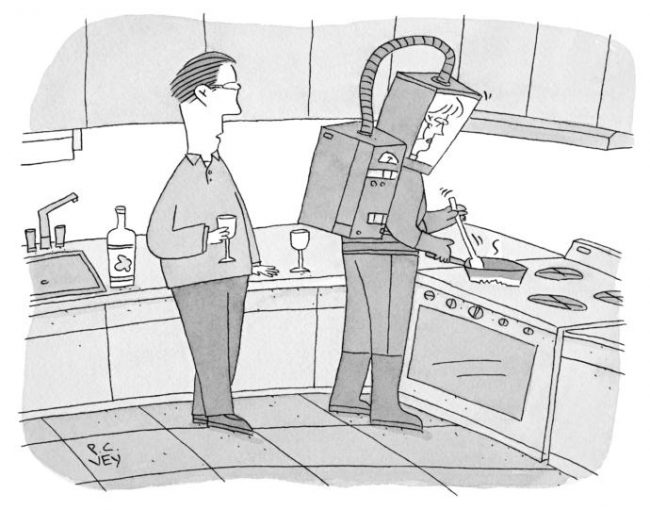
Another New Yorker cartoon contest cartoon, this one by PC Vey, with three excellent ‘finalist’ captions: (1) “Is that a new outfit?”; (2) “We had meth on Tuesday.”; (3) “Are you sure the directions said to add mustard gas?”
When the World is Going Crazy, Sing: The phenomenal “pop-up” Toronto Choir! Choir! Choir! presents a haunting, stirring 1300-voice strong version of MILCK’s anti-Drumpf protest song I Can’t Keep Quiet. They’ve also covered Cyndi Lauper’s True Colours, Patti Smith’s Because the Night, and many other other songs. Thanks to Tree Bressen for the links. And for more moving music, watch The Black-Eyed Peas and many celebrity guests sing Where’s the Love?
All Consuming Tasks: Playing off our passion for categorizing things, John Kellden spoofs Seneca and Jorge Borges with his hilarious categories of convivial tasks. Read his links to Seneca and Borges first if you want to get the joke.
Albatross!: A baby at that, mostly ignored by the blathering adults nearby. On Kaua’i, just a few miles from where I’m writing this. Camera pans around often, so wait for the baby. Awwww!
New Species of Jellyfish Found: Deep in the ocean, looking like the animate alien vehicles they are.
The Phenomenon of Yacht Rock: If you enjoyed the rich harmonies and intricate compositions of late-70s/early-80s impresarios (think: Michael Macdonald, Christopher Cross, — etc) you may not have even realized that it was a recognized genre. Here’s a playlist of 200 of the best Yacht Rock songs. (My list of favourite Yacht Rock songs is here.)
Video For Your Treadmill Marathon: The national Norwegian railway has filmed dozens of hours of stunning silent footage out the front window of its cross-country passenger train locomotive, prompting other countries to do likewise. Mesmerizing way to distract you from your boring treadmill activities.
Drumpf Pie: Jonathan Pie sums it up in 3 minutes. Falling-down funny. Thanks to Jon Husband for the link.
Words for Emotions That Don’t Exist in English: A fun list of foreign-language words that mean things that can’t be said in one word in English, if they can be said at all. Language gets slippery, though: we can say what they words denote, but not necessarily what they connote; that requires a cultural framework to understand them. Thanks to Jae Mather for the link.
What the Vietnam War Looked Like From the North: Astonishing photos taken by North Vietnamese photographers, often at enormous personal risk. Thanks to Lorraine Suzuki for the link.
Ants Have a Global Monoculture Too: Research suggests hundreds of billions of Argentine ants, spanning four continents, may belong to a single mega-colony, and recognize each other immediately and peacefully as colony-mates. Thanks to Tree Bressen for the link.
Zip It Up: Research proves that filling in emptier lanes leading up to a zipper merge and then alternating at the merge point is not only not rude, it’s the best way to optimize traffic flow.
THOUGHTS OF THE MONTH
From Kim Stafford (son of the US poet laureate) (thanks to Tree Bressen for the link). Audio version here. Full book of post-election poems sold here.
The Flavor of Unity by Kim Stafford
El sabor que nos hace únicos.
— Inca Kola slogan
The flavor that makes us one cannot be bought
or sold, does not belong to a country, cannot
enrich the rich or be denied to the poor.
The flavor that makes us one emanates from the earth.
A butterfly can find it, a child in a house of grass,
exiles coming home at last to taste wind off the sea, rain
falling into the trees, mist rising from home ground.
The flavor that makes us one we must feed
to one another with songs, kind words, and
human glances across the silent square.
A Lesson in Time by Kim Stafford
We stood on a forest road at the meadow’s edge
so Joe could teach the story of geologic time.
Mateo set a little flag—red tatter
on a rusted wire—to mark the miasmic
gathering when earth first clenched dust
by the stern affection we call gravity.
In the meadow, grass wavered, and was still.
Then Charles began to step off eons
through the Hadean Period, as low sun
lit the pines gold. We arrived at
the Iron Catastrophe. Mateo set a flag
and Ruby laid down a stem of grass.
Under a sky made blue by oxygen
bacteria had formed, once volcanism
spewed steam from burnt stone, we
marched on. At each extinction, or
new creation, Mateo set a flag
and Ruby placed her stem of grass,
until Joe pulled two hairs from
my head to set in the dust. “The thickness
of these two strands,” he said, “we’ll call
the span of civilization.” Mateo set a flag,
and Ruby placed a stem of grass.
Some definitions from The Devil’s Dictionary (1906), by Ambrose Bierce
• absurdity — a statement of belief manifestly inconsistent with ones’ own opinion
• accident — an inevitable occurrence due to the action of immutable natural laws
• admiration — the polite recognition of another’s resemblance to ourselves
• adore — to venerate expectantly
• apologize — to lay the foundation for a future offence
• brain — the apparatus with which we think that we think; that which distinguishes the person who is content to be something from the person who wishes to do something
• corporation — an ingenious device for obtaining individual profit without individual responsibility
• debt — an ingenious substitute for the chain and whip of the slave-driver
• economy — purchasing the barrel of whiskey that you do not need for the price of the cow that you cannot afford
• hope — desire and expectation rolled into one
• mind — a mysterious form of matter secreted by the brain; its chief activity consists of the endeavour to ascertain its own nature, the futility of the attempt being due to the fact that it has nothing but itself to know itself with
• mine — belonging to me, if I can hold or seize it
• novel — a short story padded; a species of composition bearing the same relation to literature that the panorama bears to art
• oppose — to assist with obstructions and objections
• opposition — the party that prevents the government from running amok by hamstringing it
• outdoors — the part of the environment upon which no government has been able to collect taxes; chiefly useful to inspire poets
• peace — a period of cheating between two periods of fighting
• photograph — a picture painted by the sun without instruction in art
• plan — to bother about the best method of accomplishing an accidental result
• please — to lay the foundation for a superstructure of imposition
• prehistoric — antedating the art and practice of perpetuating falsehood
• presentable — hideously appareled after the manner of the time and place
• reality — the dream of a mad philosopher
• recollect — to recall with additions something not previously known
• resident — unable to leave
• responsibility — a detachable burden easily shifted to the shoulders of god, fate, fortune, luck or one’s neighbour; in the days of astrology it was customary to unload it on a star
• rich — holding in trust and subject to an accounting the property of the indolent, the incompetent, the unthrifty, the envious and the luckless
• riches — the savings of many in the hands of one
• self-evident — evident to one’s self and to nobody else
• talk — to commit an indiscretion without temptation, from an impulse without purpose
• ultimatum — a last demand before resorting to concessions





